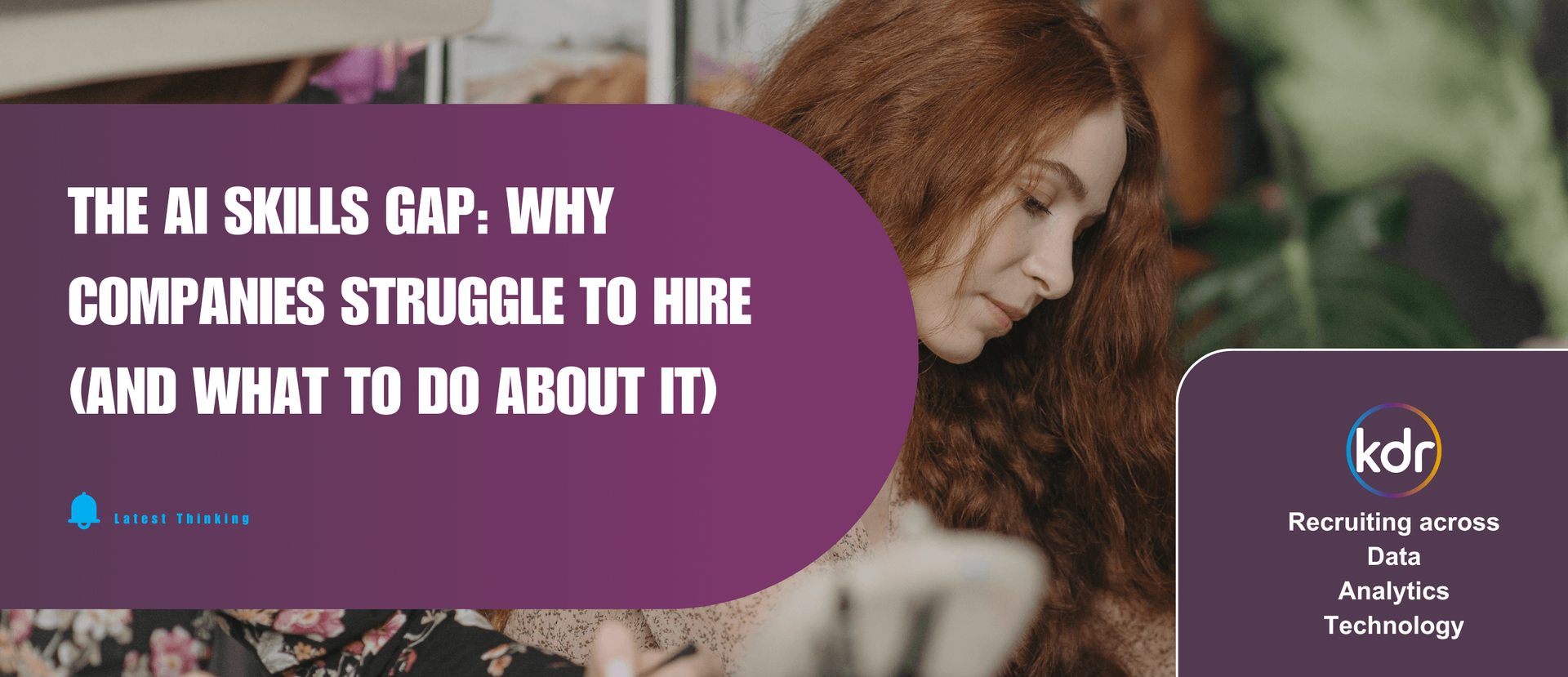Developing Data Leadership
We conducted research amongst our data leader network to find out the different ways they develop their team....

As a Data Leader, HR or Talent Team Member, developing and nurturing professionals to progress on to data leadership positions is important for retention and offering career growth for home grown talent. But given all the pressures on teams and individuals to deliver BAU activities not to mention special projects that crop up what are the best ways to improve career pathing for data professionals?
There are many different approaches that you can take that encompass
mentoring, training, and providing clear pathways for career development. We conducted research amongst our data leader network to find out the different ways they develop their team and combined that with latest thinking on the subject to provide this guide.
We provide this advice a lot but it really does all start with defining roles and responsibilities. In order to get people up to the standards required to progress, they need to know what they need to achieve or demonstrate in order to get to where they want to go. An exercise in clearly defining the different data leadership roles within your organisation which outline the skills, experiences, and accomplishments required for each level up to that point is both a task in itself and the route to success.
Bonus: Create visual career maps that outline potential career trajectories for employees, including horizontal moves that can provide valuable cross-functional experience.
Develop
robust training programmes that cover both technical skills (e.g., advanced analytics, machine learning) and soft skills (e.g., leadership, communication). Soft skills are often overlooked, however for professionals looking to progress towards data leadership roles they are crucial. In
our annual State of Data report the skills that are voted as the most important for data leaders aren’t centred around technical competence but around listening and communicating as well as strategy. Indeed, those teams that had been able to execute on their data strategy were those that felt they had excellent communication across leadership, C-Suite and business units and this comes down to individuals at the top ensuring ideas, plans and policies are clearly communicated across the business. It could be that you develop customised leadership training programmes that take an individual on a journey, or that the programme is modular and non-specific to data leadership, yet still delivers on the skill sets required further downstream.
Bonus: Encourage and support employees in obtaining relevant certifications and attending courses, workshops, and conferences.
One idea that works well is to pair potential leaders with experienced data leaders who can provide guidance, feedback, and support. Coaching and mentoring as tools are successful due to their foundation in the social learning theory, where individuals learn through observing and modelling experienced leaders. These interactions boost the confidence of emerging leaders to tackle new challenges. Grounded in Vygotsky's Zone of Proximal Development, mentors and coaches provide essential guidance that extends the learner's capacity beyond what they could achieve alone. Continuous feedback and reflective practices within these relationships enable practical skill enhancement and self-awareness. Additionally, techniques like motivational interviewing help in uncovering intrinsic motivations, aligning personal goals with professional growth. Together, these psychological principles help to create a supportive and effective environment where robust leadership skills can be nurtured through practical experience with a guide.
One area that some of the Data Leaders we spoke to lean on was around providing real-world evidence through project leadership opportunities. This is where employees are given the opportunity to lead data projects or initiatives, allowing them to demonstrate their leadership capabilities and gain hands-on experience. This is a highly effective way to boost confidence, demonstrate skills as well as areas that need improvement for employees who are looking to progress.
A couple of data leaders we spoke to talked about the creation of innovation labs or sandbox environments where employees could experiment with new technologies and approaches without the fear of failure. This set up is perfect for creating an environment and culture of innovation. It encourages, collaboration, communication skills and leadership. If you are looking to set something like this up, one example would be where employees could access a monthly “lab” day where they were allowed to work on diverse projects or aspects of their ongoing projects with other team members to get a different perspective and potentially different outcomes. Developing internal networks and communities of practice where data professionals can share knowledge, best practices, and support each other’s growth is very beneficial to both the company and the individual.
The consensus around the mix required to develop data leaders of the future seems to be to provide continuous investment in people, clear pathways for growth and a supportive culture. This will hopefully ensure that the organisation has a pipeline of capable leaders ready to take the data strategy forward.






